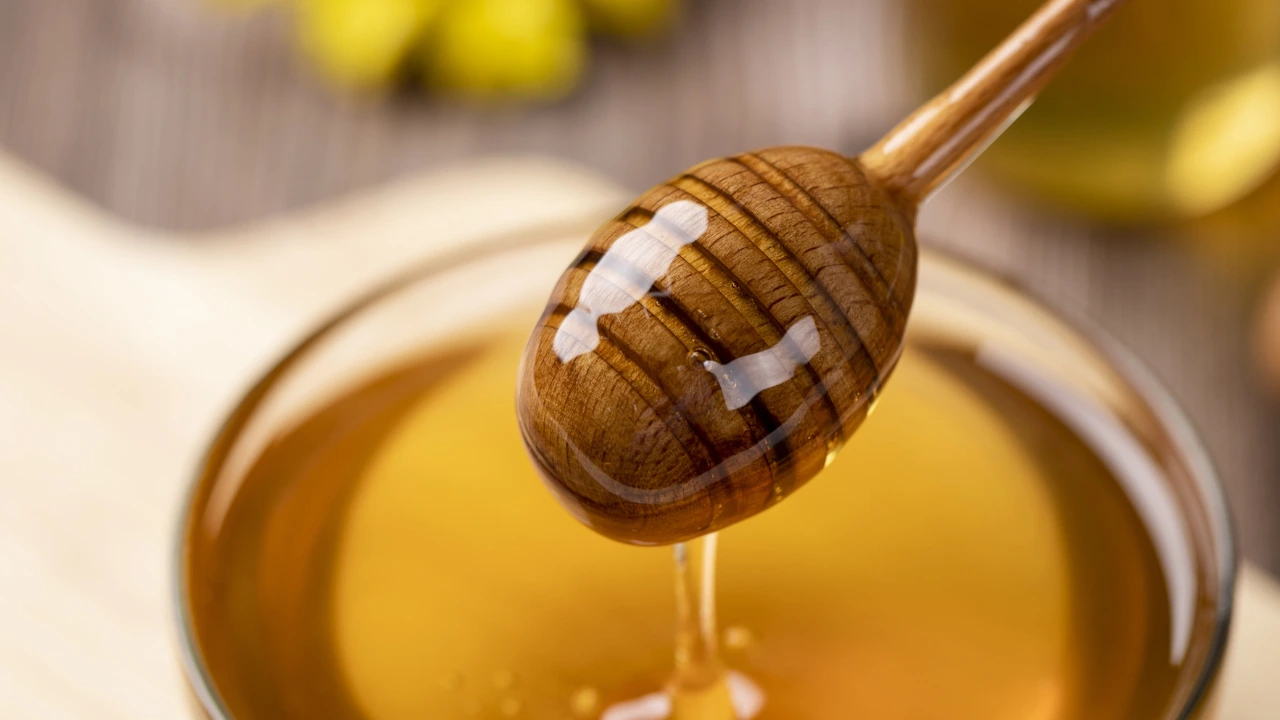
Honey isn’t recommended for babies under a one year old because there’s a risk it could cause infant botulism, an extremely rare but potentially fatal illness.
IN THIS ARTICLE
- Why is honey bad for babies?
- When is the right time for babies eat honey?
- Can babies be allergic to honey?
- How Can I Protect My Baby From Infant Botulism?
Why is honey bad for babies?
Honey can contain spores of the bacterium Clostridium botulinum, which can germinate in a baby’s immature digestive system and cause infant botulism.
Raw honey is the biggest concern, but to be on the safe side, don’t cook with honey (to sweeten baked goods, for example) if your baby is going to be eating the dish. While the toxin is heat sensitive, the spores are difficult to kill.
While botulism is very rare (fewer than 200 cases of infant botulism are reported per year in the United States), it can be fatal without treatment. If your baby shows symptoms of botulism – constipation along with muscle weakness, trouble sucking or swallowing, slack jaw, drooling, or crying and lethargy – see your doctor or go to an emergency room immediately.
When is the right time for babies eat honey?
When your baby turns a year old, honey is safe to introduce into their diet. At this point, their digestive system has developed enough to better process honey and move any harmful spores through their system.
Microorganisms found in the intestine keep harmful bacteria (including those from honey) from growing. Such microorganisms haven’t developed in young babies’ intestines yet, which is why spores in honey could be dangerous for babies but don’t harm children and adults.
Once your child is old enough, honey is okay for them to have. Honey is a great natural sweetener and also has some vitamins, such as vitamin B, along with other nutrients. Honey is traditionally known in many cultures to have healing and health benefits. Honey mixed with warm water is a natural remedy that can soothe sore throats and help suppress a cough. Raw, local honey is thought to have the most antioxidants, because it’s less processed.
But keep in mind that babies and toddlers don’t need sweetened foods. Experts recommend you don’t give babies anything with added sugars until they’re at least 2 years old, and even then, added sugar should account for less than 10 percent of their daily calories. Foods that are naturally sweet, like fruit, are okay.
Can babies be allergic to honey?
Allergies to honey are rare. However, honey allergies are possible. Honey is exposed to bees and to flower nectar and pollen when it’s made, all of which can be allergens.
Signs of a food allergy include hives, itchy skin rashes, swelling, sneezing, nausea, vomiting, diarrhea, and pale skin. If you notice any of these symptoms when your child has honey (or any other food), talk to their doctor about it being a possible food allergy.
Other signs of a rapid and severe allergic reaction (anaphylaxis) include throat tightness, breathing problems, wheezing, lightheadedness, and loss of consciousness. If any of these happen, go to hospital immediately or call the emergency number.
How Can I Protect My Baby From Infant Botulism?
Parents can help prevent infant botulism by not giving their baby honey or any processed foods that contain honey (like honey graham crackers) until after their child’s first birthday. Light and dark corn syrups also might contain botulism-causing bacteria, but a link hasn’t been proved. Check with your doctor before giving these syrups to a baby.
Nutritional Information About Honey
Because honey is a natural sweetener, many people think it’s healthier than sugar. Honey does contain trace amounts of:
Supplements
- Vitamins
- Minerals
- Electrolytes
- Enzymes
- Amino acids
- Flavonoids
However, to get the benefits of these nutrients, you would have to eat far more honey than is healthy. Honey is a sugar and is high in calories. Honey is considered an added sugar, so it should be eaten in moderation.


Add a Comment